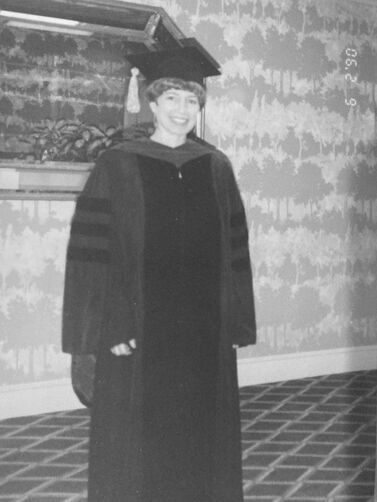|
In 1985 I spent 19 days in a 28-bed ward for critically ill women. When it was tea time, three of the women closest to my bed joined me at a small table to talk and drink our tea. They were poor women from towns outside of London. Despite the differences between them and me, we were all sick, each of us in danger of dying. We’d been talking among ourselves for a few days when one of the women put down her cup and asked, “If you could wish for anything, what would you wish for?” There was a long silence before one of the women said, “I wish I’d been to Paris.”
The second woman, married with five children, sighed. “I wish I’d had a man tell me he loved me.” The third woman hesitated, then admitted, “I wish I could afford to buy a home of my own.” They looked at me. I felt uncomfortable. I’d been to Paris. I owned my home. True, I never had a loving relationship with a man, but what I wished for was a PhD, a wish I didn’t feel I could say given how much I had compared to them. Fortunately, the discussion stopped when a Sister (nurse) told us it was time for rest, to get back in bed. It took me almost two years to deal with the complications of the diagnosis of an anomalous form of a rare leukemia, participate in an experimental medical protocol, find the energy to return to work, and deal with the deaths of my son’s father and my mother. The wish for a PhD faded. When I saw an advertisement for The Human Capacities Program, a three-year experience ending in a certificate for what would now be called a Life Coach, I signed up. Though the program had nothing to do with my work as a professor, I needed something that would help me focus on more than figuring out how to manage each day’s side effects from the trial medication. Over 150 people gathered together for the first session in the winter of 1987 to explore a variety of exercises and readings about developing our capacities as human beings. In our two-week spring meeting, a man from the Union University came to talk about its nationally accredited adult learners’ programs. All those interested were encouraged to sign up for a five-to-ten-minute meeting. I deliberately signed up for the last slot so we might have more time to talk. I met “M,” a well-dressed man who appeared to be in his mid-50’s in the small living room of a cottage. He invited me to sit at a table piled with leaflets and asked why I’d signed up for the meeting. “I’ve always wished I’d had a PhD.” I told him I’d looked at a lot of PhD programs but none seemed right for me. “I’m interested in stories. I want to understand why and how, in my teaching, they seem to unlock students’ stories, which helps them discover more about who they are. I want to know and understand more about how this process works.” “The Union PhD program is multi-disciplinary. “What are your areas of interest?’ I didn’t hesitate. “Literature, philosophy, and psychology.” We talked for a long time—him asking detailed questions—me having answers I didn’t know I’d thought about. As the interview drew to a close, I told him about dealing with the leukemia as well as teaching full time. He was quiet for a minute or so and then said, “I know this is not an easy time for you but I think you need to apply to our PhD program. Use my name as a primary reference. Don’t wait.” I didn’t. I quit the Human Capacity Program, applied to the Union Program and was accepted. People I told were not encouraging. “You’re already a full Professor with an MA. Why bother with a PhD?” “It won’t give you more money or prestige.” You’re dealing with a catastrophic illness and teaching full time, why add more stress?” I stopped explaining that I wanted the PhD program so I could explore my questions about the power of stories. I was too embarrassed to admit just how much I wanted a PhD after my name. I designed my program focusing on what I wanted to learn, picked primary and secondary advisers, and selected my committee—a Jungian psychologist, a professor of English and Comparative literature, and an adult learner studying the relationship of stories to his role as Pastor. I wrote papers, attended week-long seminars arranged around my teaching schedule, did an internship, wrote a thesis: Beyond this Crossing Place: The Stories of a Year, The Stories of a Life, and a contextual piece detailing the research I’d done. It wasn’t easy. I had to prove the research I wanted to do was valid. I had to overcome the prejudices of faculty who didn’t understand or care about why stories mattered. And, I had to deal with the complexities of illness and problematic medication and depression. To quote whoever said it, “My eyes were on the prize.” In1990, age 54, six years after being in a ward with critically ill women, my wish came true. I was now Nancy King, PhD. Have you wished for something that made no sense to others? What happened?
2 Comments
Marlene Simon
9/8/2023 02:13:48 pm
Brave. Tenacious. Single-minded. Fearless. These are words that come up for me when I'm reading Nancy's stories. And, of course, survivor and thriver. I'm always so impressed with the fact that Nancy doesn't seem to hear the word, "no." And the quest for answers and the ability to keep stretching herself and continue to learn and go her own way. These are things that come to mind when I read of her challenges and accomplishments.
Reply
Dan Witmeyer
9/18/2023 01:05:59 pm
You were a great teacher before the PhD.
Reply
Leave a Reply. |
Monthly StoriesStories inspired by world tales to challenge and comfort. Archives
July 2024
Categories |
Copyright © Nancy King 2020 | Site Design by Angulo Marketing & Design
|
|
Nancy King is a widely published author and a professor emerita at the University of Delaware, where she has taught theater, drama, playwriting, creative writing, and multidisciplinary studies with an emphasis on world literature. She has published seven previous works of nonfiction and five novels. Her new memoir, Breaking the Silence, explores the power of stories in healing from trauma and abuse. Her career has emphasized the use of her own experience in being silenced to encourage students to find their voices and to express their thoughts, feelings, and experiences with authenticity, as a way to add meaning to their lives.
|


 RSS Feed
RSS Feed